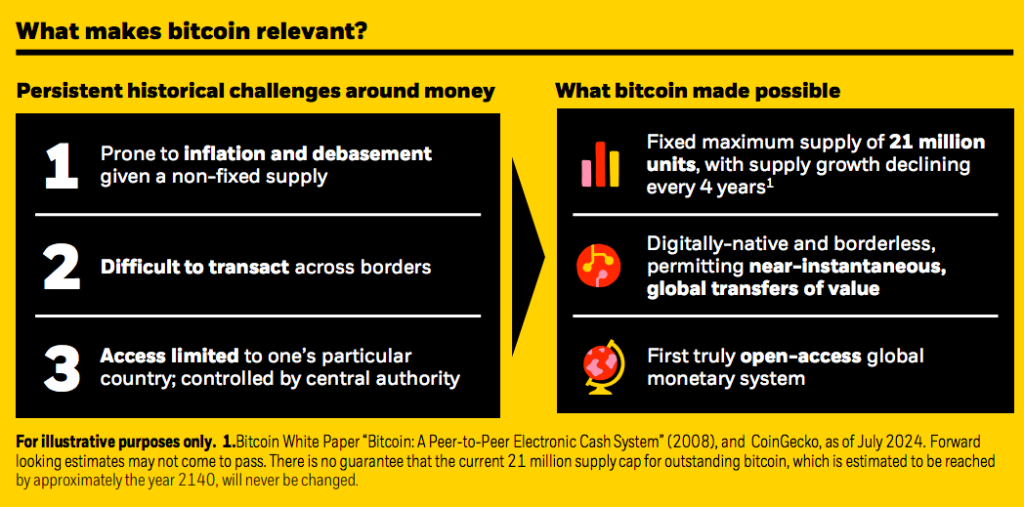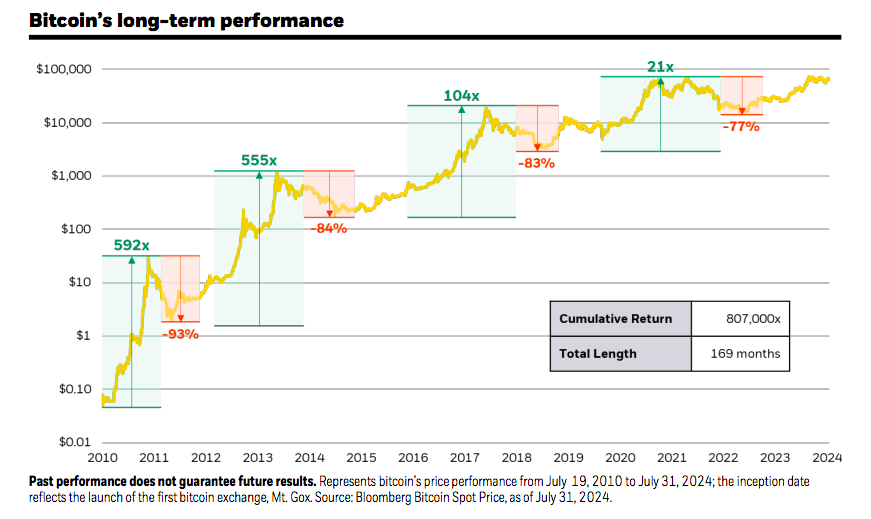Last updated:
 Why Trust Cryptonews
Why Trust Cryptonews

In a new whitepaper from Sept. 17 titled “Bitcoin: A Unique Diversifier,” investment giant BlackRock delves into the potential of Bitcoin (BTC) as a hedge against geopolitical and monetary risks.
Authored by Robert Mitchnick, Russell Brownback, and Samara Cohen, the report challenges traditional finance frameworks and highlights Bitcoin’s distinctive characteristics.
Bitcoin’s Unique Diversification Potential
According to BlackRock analysts, Bitcoin’s “unique nature” makes it unsuitable for the “risk on” or “risk off” asset categorization. The report emphasizes that Bitcoin’s long-term return drivers are fundamentally uncorrelated with other portfolio returns, despite its volatility and occasional short-term co-movements with equities. The whitepaper states:
“While Bitcoin has been volatile and has seen short episodes of co-movements with equities Bitcoin’s long-term correlation to equities and bonds has been low and its long-term historical returns have been vastly higher than all major asset classes.”
BlackRock attributes Bitcoin’s potential diversification benefits to its scarcity, decentralized nature, and global accessibility. The report notes that Bitcoin’s hard-coded supply cap and its ability to be transported worldwide at near-zero costs differentiate it from traditional currencies.

Balancing Risks and Benefits
However, the report also acknowledges the risks associated with Bitcoin, including its volatility, regulatory challenges, and the uncertainty surrounding its adoption as a global payment asset. Despite these risks, BlackRock argues that Bitcoin’s unique properties can provide a valuable diversification benefit for investors.
“While Bitcoin has shown instances of short-term co-movements with equities and other ‘risk assets’, over the longer term its fundamental drivers are in many cases inverted, versus most traditional investment assets,” the report concludes.
“As the global investment community grapples with rising geopolitical tensions, concerns over the state of U.S. debt and deficits, and increased political instability around the world, Bitcoin may be seen as an increasingly unique diversifier against these fiscal, monetary and geopolitical risk factors investors may face elsewhere in their portfolios.”

IBIT Inflows Slow Down Despite Strong Overall Performance
BlackRock’s flagship Bitcoin exchange-traded fund (ETF), IBIT, has experienced a significant slowdown in inflows over the past two weeks. According to data from Farside Investors, the fund recorded zero inflows for most days between Sept. 10 and Sept. 13. While the fund did see some inflows during this period, totaling $15.8 million on Sept. 16 and experiencing outflows of $9.1 million on Sept. 9, these were relatively minor compared to the fund’s overall performance.
📈 BlackRock’s IBIT spot Bitcoin ETF recorded its first daily net inflow since August 26, attracting $15.8 million in new investments. #BlackRock #ETFhttps://t.co/crvQoNSOhB
— Cryptonews.com (@cryptonews) September 17, 2024
Despite the recent lull, IBIT continues to hold a substantial lead in terms of total inflows since the launch of spot Bitcoin ETFs in the United States in January. Since the beginning of the year, IBIT has attracted $20.924 billion in inflows, far surpassing its closest competitor, Fidelity Wise Origin Bitcoin Fund (FBTC), which has seen $9.704 billion in net inflows.





